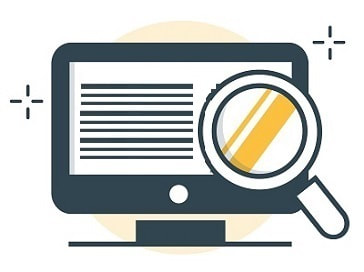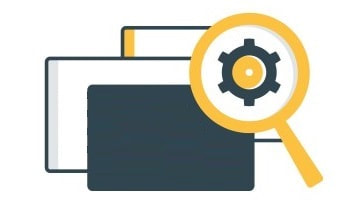The Best Joint Bank Accounts - The Definitive New Zealand Guide
Our guide explains the purpose of joint accounts, the pros and cons and must-know facts and frequently asked questions. We also review joint accounts from ANZ, ASB, BNZ, Kiwibank, TSB and Westpac.
Updated 22 August 2022
Summary
To help you make the right decision, our guide covers:
Summary
- Whether you want to consolidate your banking transactions with your partner, run a flat account or set up the first bank account with your business partner, joint accounts can be an extremely useful tool. However, there are several risks are associated with setting up joint accounts.
- We argue that the 'best' joint account is one that has no fees or very low fees, no overdraft (to avoid high interest and the risk of liability should things go astray) and easy access (and control) for all parties.
- Joint accounts don't need to be fancy or costly - simple and as close to free is arguably the best solution.
To help you make the right decision, our guide covers:
MoneyHub Founder Christopher Walsh shares his views about joint accounts:"Joint accounts - they can solve a problem such as flat finances or cause relationship problems when someone 'misuses' the money, even if it's not a significant amount. It's essential to be comfortable with the reason and purpose as to why you're opening up a joint account in the first place to use it properly".
"Personally, my first and last joint account was with flatmates at Otago - it worked perfectly and was a great idea to pay the power bills and Pak'nSave trips. However, since then, I've not needed to apply for a joint account. In doing so, I've stuck to a separate bank account in 10+ years of being in a relationship. However, that won't suit everyone - I would argue you have to both have the same attitude to money (i.e. not a fan of spending it) and have full financial trust to run separate accounts and feel everything is 'fair', which isn't always easy". "If you're married or in a relationship, joint accounts are, on paper, perfect for paying the mortgage or rent, supermarket trips and all the bills you incur. However, where things go wrong is when money is spent on one person's wants at the cost of both. For this reason, a popular approach is for each person to transfer a set amount per week or month to cover agreed-upon basics - rent/mortgage, power, broadband. This avoids the negative feelings when $100 or so leaves the joint bank account and gets spent at the pub, the TAB or on lunches with friends". "Whatever you decide to do, I'm firm of the belief that no one needs a joint account with an overdraft - it's expensive debt that is best avoided. While it may help a mortgage payment goes through, I would suggest cutting down on costs and selling things to top up a bank account before relying on an overdraft to pay essential bills". "This guide clarifies one thing - a joint account shouldn't be complicated. If all parties agree upfront about what the account is for (and what it's not) and how much to contribute, then there's little room for disagreements". |
MoneyHub Founder
Christopher Walsh |
Know This First: What is a Joint Account?
Two or more people share a bank account with a joint bank account. A joint account can be any bank account (such as savings, transaction or term deposit). The kind you select depends on who you share the account with and your goal. For example, you may choose a savings account if you and your partner are saving for a home deposit or a transaction account if you share rent and groceries with housemates.
In most cases, dollars in a joint account are owned together. In this capacity, every account holder is entitled to all the money and liable for all the debt on the account. Couples, children, and business partners commonly use joint accounts.
In most cases, dollars in a joint account are owned together. In this capacity, every account holder is entitled to all the money and liable for all the debt on the account. Couples, children, and business partners commonly use joint accounts.
Why would I want a joint account?
A joint account can be very convenient when you're living with a partner, flatmate or friend and sharing expenses. Instead of dividing power, broadband and subscription payments and paying a portion each, a joint account allows you to merge your finances to pay for things like groceries, power, and rent.
In addition, you can set up automated repayments from the joint account and use it to save for joint purchases. However, this can be as risky as it is easy. If you're in a new relationship and have different attitudes to money, things can go wrong.
Common situations to open a joint account include:
In addition, you can set up automated repayments from the joint account and use it to save for joint purchases. However, this can be as risky as it is easy. If you're in a new relationship and have different attitudes to money, things can go wrong.
Common situations to open a joint account include:
- Sharing costs with people in the house/flat
- You’re in a relationship with your partner or living together
- Creating a business together with a business partner
How do Joint Accounts Work?
Joint accounts have a few unique characteristics compared to traditional bank accounts:
- Everyone has full access to the joint account: Generally, any account holder can deposit or withdraw cash and switch money between accounts without restrictions. They'll additionally have access to the account through all methods, including online banking, mobile apps, ATMs and bank branches.
- Any person can restrict access to the joint account if necessary: Some banks provide the functionality to restrict access to the joint account if necessary. Generally, the primary account holder will be permitted to deal with matters like credit cards. For example, they won't be able to withdraw all money from the account unless all account holders agree. In addition, there's typically a limit on the maximum amount of money any account holder can move in one day. This protective measure is done to ensure that if someone's access is stolen, the thief isn't able to drain the account without the other account holders' knowledge.
- Everyone shares the assets and liabilities: All your names will be listed on the account, and you'll all have joint accountability for the account. So if, for example, money is owed on the account, you're jointly liable for the debt. It's important to consider this in the instance where other account holders aren't able to pay it back.
How can I apply for and open a joint account?
The first step to opening a joint account is to apply for one online or in a local branch. After that, all people on the joint account must eventually verify their identity (either at the same time or individually) and assign their names to the account.
If you’re not an existing customer of the bank, you’ll want to bring with you a form of identification, for example:
You’ll also need to show proof of address. Examples of this include:
If you’re not an existing customer of the bank, you’ll want to bring with you a form of identification, for example:
- New Zealand driver's licence
- New Zealand or foreign passport
- New Zealand birth certificate
- New Zealand citizenship certificate
- Student ID
You’ll also need to show proof of address. Examples of this include:
- Bank statements from the last 12 months
- Statements, letters or invoices from government organisations (such as the Inland Revenue, Work and Income or NZTA) from the last 12 months
- Gas, electricity or broadband statements from the last 12 months
How can I close down a joint account?
If you want to close a joint account, there are a few steps to cover off to make sure it’s closed properly:
- Agree with your other account holders to close the account
- Check the joint account history (debits and credits)
- Pay off all debts in the joint account and divide excess money among other accounts.
- Contact your bank (together with all account holders) to close the accounts formally.
- Get proof from the bank of the account closure in writing for record-keeping purposes.
Joint Accounts - Pros & Cons
While a joint account may be convenient, it can create tension if the relationship between you and the other account owners goes sour. We’ve outlined the key pros and cons below to help you assess if a joint account is right for your needs:
Pros:
Cons
Pros:
- For personal users, joint accounts are simpler to pay for shared expenses from one account, you'll only pay fees on one account (versus having to pay fees on two separate accounts), and all account holders can access the account, reducing the need to query whether a bill has been paid every week.
- For businesses, a joint account lets anyone connected to the account make a payment to a key supplier or creditor; having a joint account alleviates any fear of not making bank payments if you're away for any period.
Cons
- Shared access to money in the bank account: Joint bank accounts allow different account holders to move money in the account easily. A question to ask yourself is if you're comfortable with different account holders getting access to money in your joint account without requiring your permission. Likewise, are the other joint account holders happy to give you that same access?
- 'Free spending' is possible: Joint accounts typically come with debit cards that account holders can use to buy items or withdraw money. Think about who will have access to a debit card and how they could use it.
- Responsibility for debt: When your name is printed on a joint account, you hold equal responsibility for any debt linked to that account(such as loan or financing agreements, credit card debt, or unpaid bills), whether or not you're aware of them. Failure to pay that outstanding debt may also affect your credit score rating and make it challenging to borrow in the future. For example, if every other account holder borrows on the joint account and incurs debts they can't pay back, you will likely be liable for this.
Joint Account Options - ANZ vs ASB vs BNZ vs Kiwibank vs TSB vs Westpac and more
- Our summary of what's on offer focuses on everyday transaction joint accounts.
- When you apply, you'll decide how many debit or EFTPOS cards are issued (and to who), the bank account you want to operate (free fees vs premier etc) and whether or not there will be an overdraft. Overdrafts generally need to be applied for in branches.
- Some banks let you apply online while others require you to visit a branch. We highlight the options below:
- ANZ (online and branch applications). Joint account holders can choose between the 'Freedom', 'Go' and 'Select' accounts.
- ASB (branch applications). Per the ASB's website, "to open a joint account, please visit an ASB branch - we can open an account with just one name, but everyone will need to come in - either together or separately - to put their name on the account".
- BNZ (online and branch applications). Joint account holders will need to prove their identity using their passport or via RealMe.
- Kiwibank (branch applications). Per the Kiwibank website, "Since you're opening an account for two people, we need to see both of you in a branch. We'll need to verify your identity and address. Please bring some ID and proof of address to your appointment. Once you've been verified we can give you a Visa Debit or EFTPOS card".
- TSB (online and branch applications). Joint account holders will need to prove their identity using a smartphone or webcam.
- Westpac (online and branch applications). Joint account holders will need to prove their identity via Westpac EasyID or RealMe.
Our view: You may have an existing relationship with a bank and wish to open a specific-purpose joint account for a specific purpose. If that's the case, we argue that the 'best' joint account is one that has no fees or very low fees, no overdraft (to avoid high interest and the risk of liability should things go astray) and easy access (and control) for all parties. Joint accounts don't need to be fancy or costly - simple and as close to free is arguably the best solution.
Dealing with Disputes around Joint Accounts
If a dispute arises with the other account holders, you can take a couple of steps to protect your money while you sort it out. This usually happens with a relationship rather than a flatmate or business situation. In any case, it's best to try and resolve the dispute amongst the account holders. However, the bank can assist with disputes if this isn't possible. Here are your options:
1. Put the joint account on hold.
2. Add or remove specific account holders.
3. Close the bank account
1. Put the joint account on hold.
- Contact the bank and ask them to put the account on hold, preventing any account holder from transacting on the account until the dispute has been resolved. The bank will let the other account holders know the account has been put on hold.
- Once the dispute has been resolved, all account holders must agree to reverse the hold on the account and restore account privileges. Your bank will be able to do this for you.
2. Add or remove specific account holders.
- Banks will generally approach this with caution if an account holder wants to add or remove an account holder due to a relationship dispute. The bank is a third party and will not "pick sides". A bank is less concerned with relationship disputes and more concerned with capital protection (e.g. the money in the account).
- A bank typically recommends that account holders try to work out their differences or shut the account. If the money in the account is in dispute, the bank will likely put a temporary hold on the account. Before making any substantial changes, it will require agreement from every account holder.
3. Close the bank account
- Generally, the safest route is to ask the bank to close the account. However, because all account holders are generally required to settle accounts, it's usually easier to part ways if the dispute isn't resolved.
Must-Know Facts to Consider When Opening a Joint Account
1. You can have both joint accounts and separate accounts.
2. Recognise that you are combining debt by opening a joint account
3. Decide which assets you want to share and which assets you want to keep separate.
4. Consider the other account holder’s mindset toward money.
5. Ask for advice before opening a joint account.
6. Take precautions with joint accounts.
Here are the main tips to assist you in preventing joint account headaches down the track:
- You don't need to pick one type of account. For example, you and your joint account holders can also hold cash in separate accounts while using a shared account for shared bills (such as Netflix, Spotify family plan etc.). Discuss with your other account holders what expenses you think should be paid with your shared account and what each of you should be contributing to the account.
2. Recognise that you are combining debt by opening a joint account
- Recognise the financial implications of opening a joint account. Pooling finances together can mean that their debt may grow to be your debt (and vice versa) if there's an overdraft attached to the account.
- To avoid future disputes, you need to openly and honestly talk with the other account holders on finances.
3. Decide which assets you want to share and which assets you want to keep separate.
- While the other account holders own the assets in the joint account, your sole accounts are completely separate. Therefore, it's important to decide which assets you want to put into the joint account (which the other account holders will have a claim on) and which assets you want to keep separate.
- Typically, in a dispute, all assets in the joint account are broken up evenly, meaning the more you contribute to the joint account, the more you may lose if the account is closed.
4. Consider the other account holder’s mindset toward money.
- There are many different ways to manage personal finances. Opening a joint account is a big step, so it's always worth thinking about the spending habits of your other account holders.
5. Ask for advice before opening a joint account.
- Chatting with your bank regarding joint accounts can be a great way to see if it's the right choice for you. They will be able to consider the different options available to you and whether a joint account makes sense. Joint accounts are not always the best option. If you're in a business relationship or entering a personal relationship, it may also pay to discuss with a legal professional. The more people you talk to, the more likely you feel comfortable with your decision.
6. Take precautions with joint accounts.
Here are the main tips to assist you in preventing joint account headaches down the track:
- Be sure the people you’re opening the joint account with are people you trust and think will operate ethically.
- Check they have a strong credit history and good financial habits.
- Have clear ground rules on managing the account and what will happen if a disagreement arises.
- Keep a watchful eye on the account once it’s been created via your online banking/banking app, and set up notifications to warn you of any suspicious activity.
Frequently Asked Questions
Who should I consider adding when opening a joint account?
It depends. There are multiple factors to consider when opening a joint account, whether for personal or business reasons. As a generic rule of thumb, if you trust the prospective account holders and it would make logistical sense to have a shared account, it may be worth opening a joint account. However, discussing with a financial advisor or your bank is always worthwhile to get their perspective. It's free and confidential to do.
Do we need to get an overdraft when applying for a joint account?
Overdrafts are, per our research, expensive debt. There is also a considerable risk in taking on an overdraft as any balance owed has to be paid back, and all joint account holders are equally liable. So while overdrafts may seem attractive to solve 'urgent payments', we suggest considering an alternative - keeping a healthy balance in the account instead and ensuring everyone contributes on time.
Can I remove myself from a joint account?
Yes. You can remove yourself from a joint account by sending a message to the relevant bank (either online or in a physical branch) requesting to be removed. The bank will then let the other account holders know who can decide what to do with the account.
How can I close a joint account permanently?
Suppose you want to close a joint account as it no longer makes sense for either party (for example, the relationship has been damaged irrevocably). In that case, the account holders must decide what to do with the remaining cash or debt in the account. The best course of action is to try to resolve this as soon as you can. If it's not possible to get to an agreement, contact the bank. They will be able to provide recommendations on the future of the account.
What types of joint accounts can be opened?
You can open a joint account for most accounts, including transactions, savings and term deposit accounts. Other accounts exist, but you should check with the bank you're opening the joint account with to see whether they can accommodate these niche accounts.








